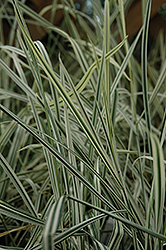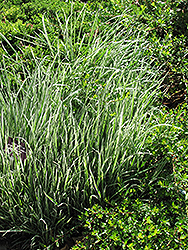>> Home
Variegated Oat Grass
Arrhenatherum elatum 'Variegatum'
Height: 18 inches
Spread: 24 inches
Sunlight:
![]()
![]()
Hardiness Zone: 2a
Other Names: Bulbous Oat Grass
Description:
Tall upright grassy foliage of grey-green with creamy white variegation add a beautiful texture to garden beds and borders; this low maintenance selection is easy and fast to grow during the season; drought tolerant once established
Ornamental Features
Variegated Oat Grass is primarily valued in the garden for its cascading habit of growth. It attractive grassy leaves remain grayish green in colour with showy creamy white variegation throughout the season.
Landscape Attributes
Variegated Oat Grass is a dense herbaceous perennial grass with a shapely form and gracefully arching stems. It brings an extremely fine and delicate texture to the garden composition and should be used to full effect.
This is a relatively low maintenance plant, and is best cleaned up in early spring before it resumes active growth for the season. It has no significant negative characteristics.
Variegated Oat Grass is recommended for the following landscape applications;
- Mass Planting
- General Garden Use
Planting & Growing
Variegated Oat Grass will grow to be about 18 inches tall at maturity, with a spread of 24 inches. Its foliage tends to remain dense right to the ground, not requiring facer plants in front. It grows at a medium rate, and under ideal conditions can be expected to live for approximately 8 years. As an herbaceous perennial, this plant will usually die back to the crown each winter, and will regrow from the base each spring. Be careful not to disturb the crown in late winter when it may not be readily seen! As this plant tends to go dormant in summer, it is best interplanted with late-season bloomers to hide the dying foliage.
This plant does best in full sun to partial shade. It is very adaptable to both dry and moist locations, and should do just fine under typical garden conditions. It is considered to be drought-tolerant, and thus makes an ideal choice for a low-water garden or xeriscape application. It is not particular as to soil type or pH, and is able to handle environmental salt. It is highly tolerant of urban pollution and will even thrive in inner city environments. This is a selection of a native North American species. It can be propagated by division; however, as a cultivated variety, be aware that it may be subject to certain restrictions or prohibitions on propagation.

